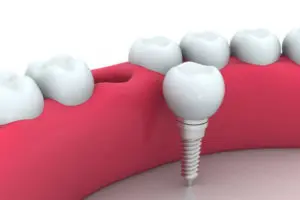Tooth Loss Can Have Far-Reaching Effects on Your Dental Health


The type of replacement tooth you choose matters. All devices are not created equal. For example, dental implants provide a structurally complete replacement, mimicking the root of the absent tooth while supporting a crown, bridge or denture. Alternatively, conventional dental bridges and dentures do not include such a structure.
Patients who are exploring tooth replacement options should consult with an oral surgeon to learn more about this intervention and to determine if they are good candidates for the treatment. If so, their oral health can benefit in the long run.
That root structure is tremendously important to our oral health, although we often take it for granted because we don’t see it. Yet, it stabilizes the jaw and prevents it from wearing away, which unfolds following tooth loss.
Additionally, the connection between the root and the jaw also helps you to chew a wide variety of foods. A denture, for example, is not nearly as effective for chewing because it has no link to the jaw. Consequently, denture wearers often find that they must give up some of their favorite foods.
For patients who need to replace only a small number of teeth, the impact of the replacement tooth on surrounding biological teeth also comes into play. A dental implant stands alone, while a dental bridge requires crowns to be placed on adjoining teeth (and healthy enamel to be removed from those teeth in the process) to support the prosthetic crown or crowns.
Patients who need to replace missing teeth have a number of treatment options, and it’s important to explore them all in the process of making your decision. Call our office to get more information on dental implants or to schedule an appointment to discuss this intervention with one of our oral surgeons.